A powerful, meaningful, and inspiring discussion: “Refugee Education and Inclusion in Schools and Local Communities: What Are the Possibilities for the Future?
The online event took place on Friday, 5th March 2021, organized by EWC’s project “Schools for All – Integration of Refugee Children in Greek Schools”. The head trainer of the project and former school advisor, Angelos Vallianatos, coordinated a lively, online dialogue with four education specialists regarding the potential and perspectives of education of refugee students in the current school reality.
One of the trainers and Head at the Special Secretariat for the Protection of Unaccompanied Minors and “Schools for All” , Geli Aroni, the Associate Professor at the Democritus University of Thrace, Giorgos Mavromatis, the Education Officer at UNICEF, Giorgos Simopoulos, and the Deputy Professor at the University of Ioannina, Lida Stergiou, shared academic and professional insights and experiences.
Above all, the distinguished speakers shared their academic knowledge and professional experience, their core passion, and dedication to create an inclusive school. “What is intercultural education?”, “Do we play well with others?”, “What kind of school do we want?”, “What do refugee students contribute to the school?’, “Where does our fear of the unknown ‘Other’ lie?” were few of the points covered.
All contributors to the discussion pointed out the need for an inclusive, respectful school as a matter of urgency and discussed the essence of otherness.
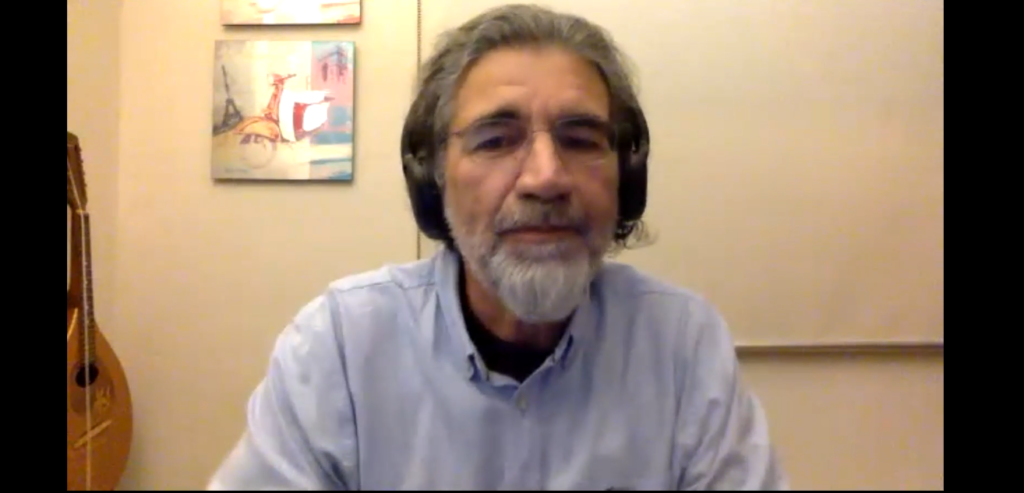
Angelos Vallianatos 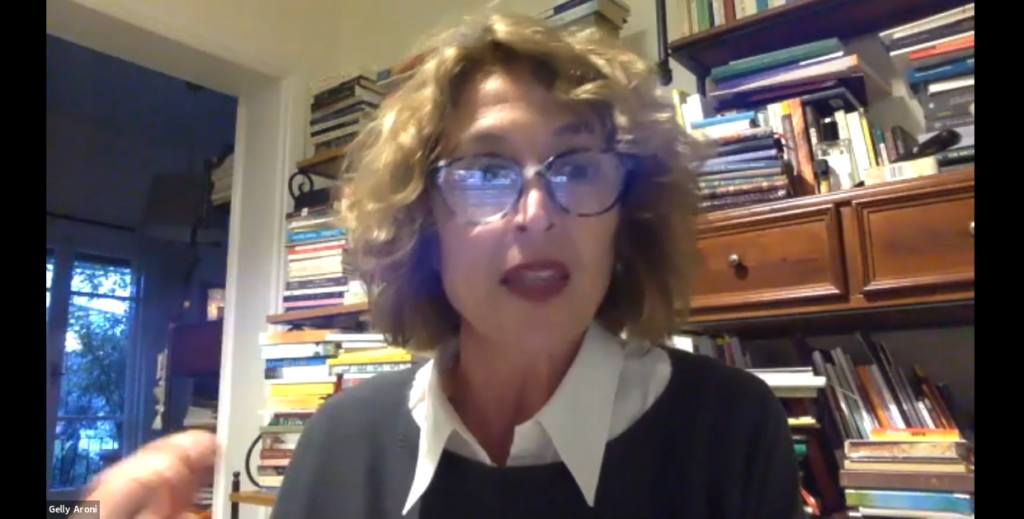
Geli Aroni 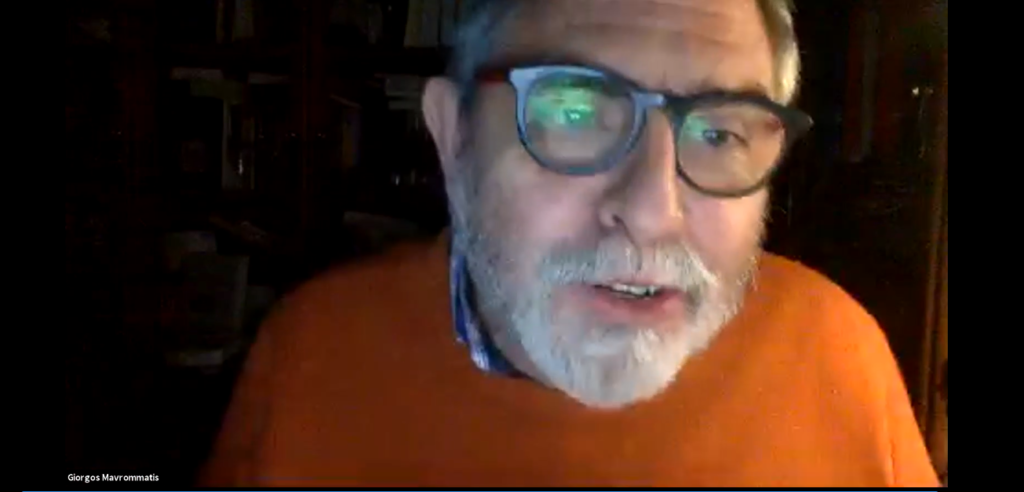
Giorgos Mavromatis 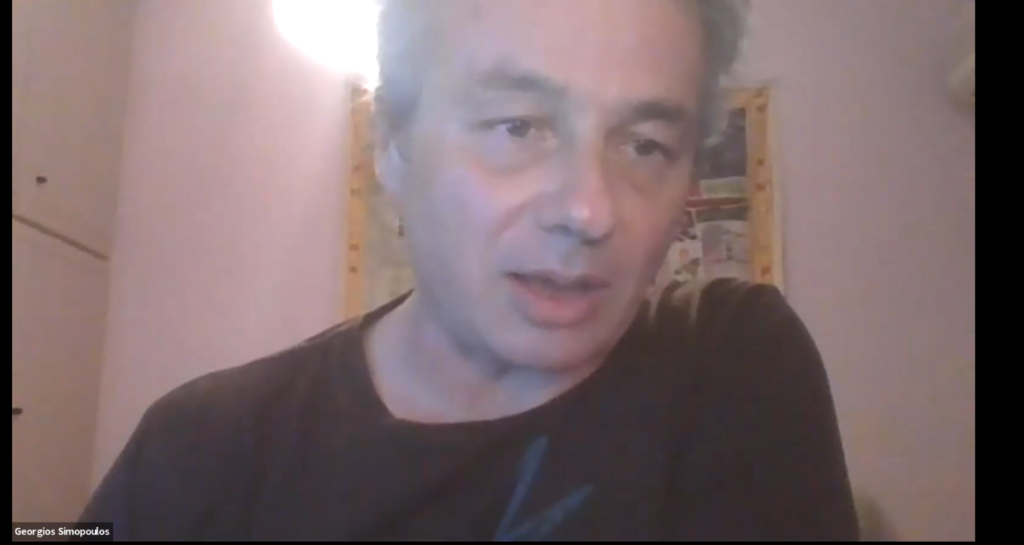
Giorgos Simopoulos 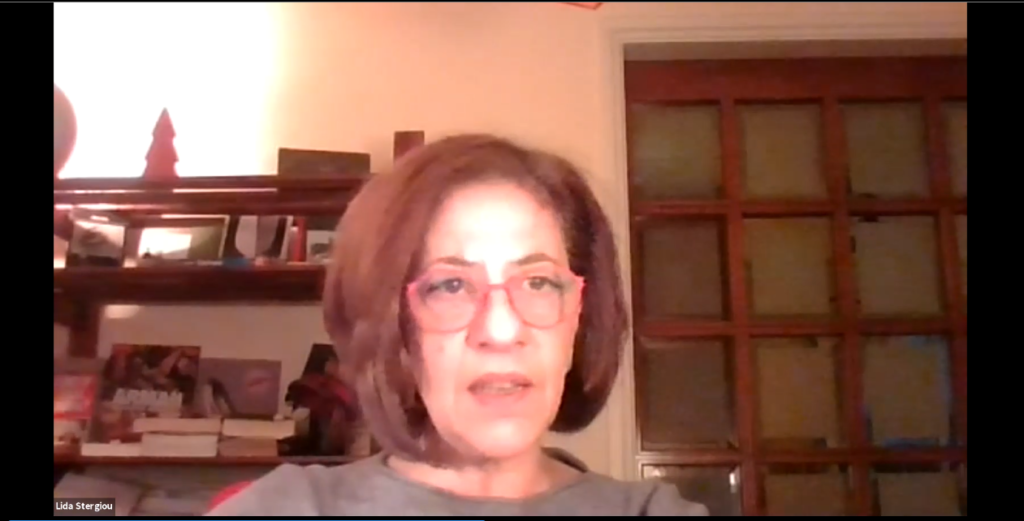
Lida Stergiou
“An inclusive school belongs to the students, the parents, the teachers, the community, and they belong to it. It is a school where all can exist in their own integrity, bringing along their characteristics and skills, and where difference is a given, an asset, not an impediment”, Lida Stergiou explained.
“The basic prerequisite to understand and approach the Other is the willingness” stressed Geli Aroni.
“What kind of school do we want”? The panelists elaborated from many aspects.
“Unfortunately, the greek school is directed to an imaginary, average student. It is essential to realize that an inclusive environment is essential for all students, not only refugee pupils. During this pandemic, when students were deprived of their school environment, it was revealed even more that school covers multiple needs of the students: not only to learn but also to feel, interact and experience” noted Mr. Simopoulos.
On that note, the interactive relationship within the school communities and what refugee students offer to their schools were discussed.
George Mavromatis mentioned that the presence of refugee students reminds us how to be human beings, stressing that “The teacher is the bearer of knowledge and the world, not the bearer of dogma.” For the teacher who reflects, forms relations, and tries out new ways, this pursuit will only have benefits, the speakers agreed. This is the beginning to “reconsider the school, look at it through different lenses” as noted by Angelos Vallianatos.
According to the surveys completed by the majority of attendees, the event was well attended, partly by the existing network of the project’s schools but mostly extending the outreach, from the Academy to primary and secondary education schools, NGOs, and educational institutions. The feedback and commentary of the attendees were impressively positive and constructive, highlighting a much-needed sense of encouragement, community, and action towards an inclusive, democratic school.
As a guidepost, we keep the hopeful and wise perspectives of the speakers:
“We have experienced darkness but also moments of absolute light in the field. I believe that practice communities are the answer!” Ms. Aroni noted.
“When you wonder where the road ends, remember: the road goes on and on, the road ends where you decide to stop”, concluded Mr. Mavromatis.
More educational online events will take place in the following months.
The project “Schools For All” is being implemented under the “Local Development and Poverty Reduction” programme in Greece, by the European Wergeland Centre (EWC), under the auspices of the Ministry of Education and Religious Affairs and with the support of the Institute of Educational Policy (IEP). The “Local Development and Poverty Reduction” programme in Greece, financed by Iceland, Liechtenstein and Norway, was awarded a total budget of 6,5 million euros as part of the EEA Grants 2014 – 2021. The program aspires to contribute to enhancement of social cohesion and reduction of economic and social disparities. The Fund Operator for the “Local Development and Poverty Reduction” programme in Greece is SOL Consulting S.A in partnership with Human Rights 360.
More information: https://www.asylumandmigration-eeagrants.gr